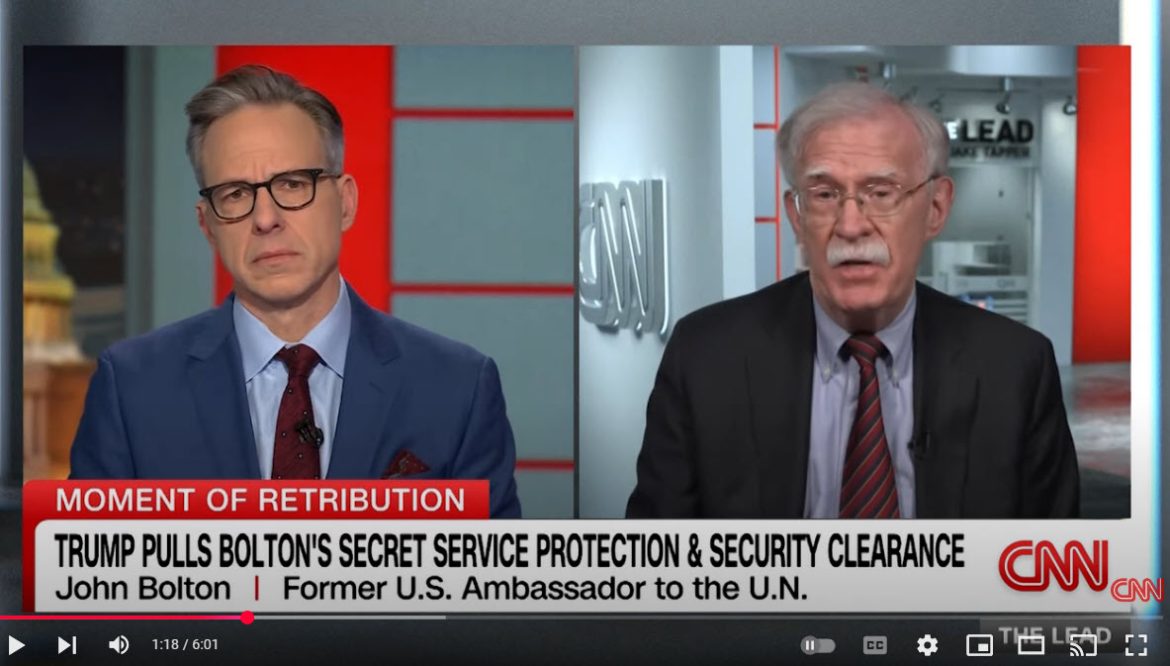In a series of decisive actions, President Donald Trump has revoked the security clearances of 50 former U.S. officials, including his former National Security Adviser, John Bolton. This move, executed through an executive order, also extends to former CIA Directors John Brennan and Michael Morell.
The day following the revocation of his security clearance, Bolton’s Secret Service protection was also terminated. This development is particularly significant given that Bolton had been under continuous protection since December 2021, following credible threats against his life orchestrated by Iran’s Islamic Revolutionary Guard Corps. In August 2022, an Iranian national was charged with plotting to assassinate Bolton in retaliation for the U.S. airstrike that killed Iranian General Qassem Soleimani in 2020.
President Trump justified the revocation of Bolton’s security clearance by citing the unauthorized disclosure of sensitive information in Bolton’s 2020 memoir, “The Room Where It Happened.” Trump characterized Bolton as a “dumb person” and an “inciter of wars,” referencing Bolton’s advocacy for the Iraq War during his tenure in previous administrations.
In response to the termination of his security detail, Bolton expressed disappointment, stating that the threats against him persist and that the removal of protection is “unwarranted and unwise.” He emphasized the ongoing risk posed by foreign adversaries and urged the administration to reconsider its decision.
These actions are part of a broader initiative by President Trump to revoke security clearances from former officials who have been critical of his administration. The executive order specifically targets individuals who, in 2020, signed a letter suggesting that the Hunter Biden laptop story bore the hallmarks of a Russian disinformation campaign. Critics argue that this move is an unprecedented use of presidential authority to penalize political adversaries and could have a chilling effect on free speech.



